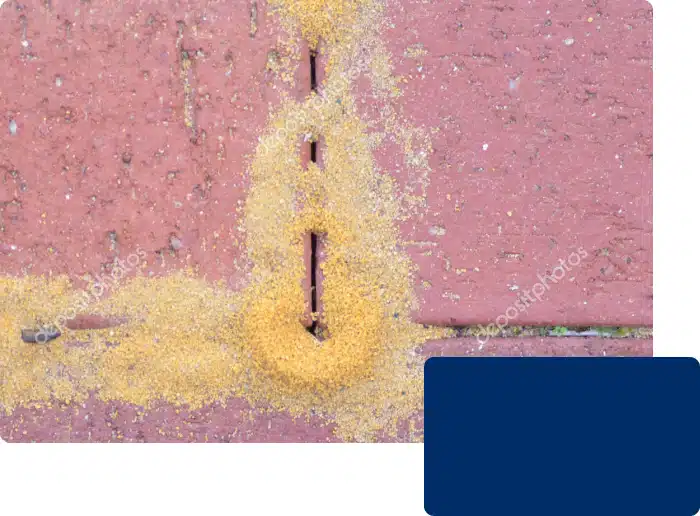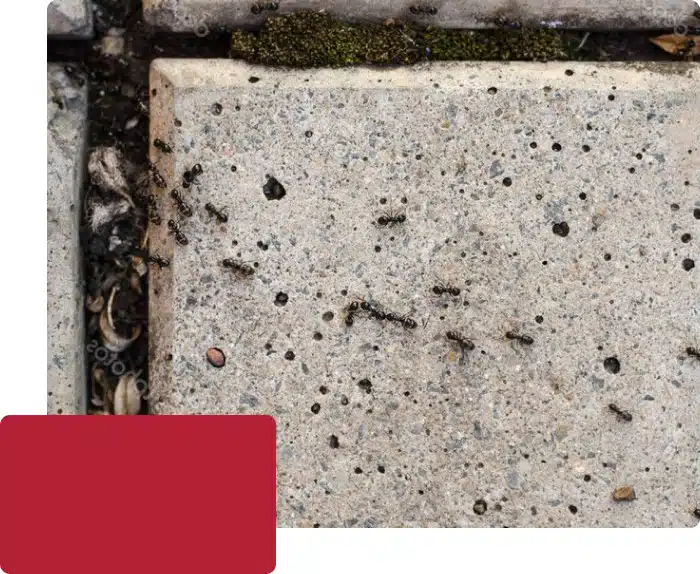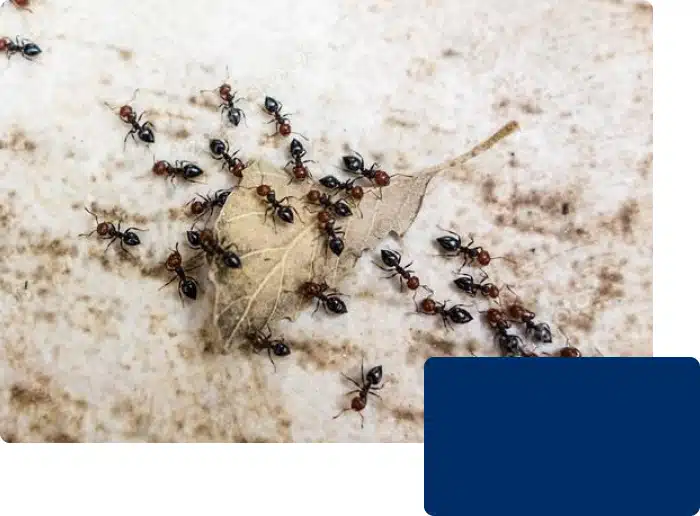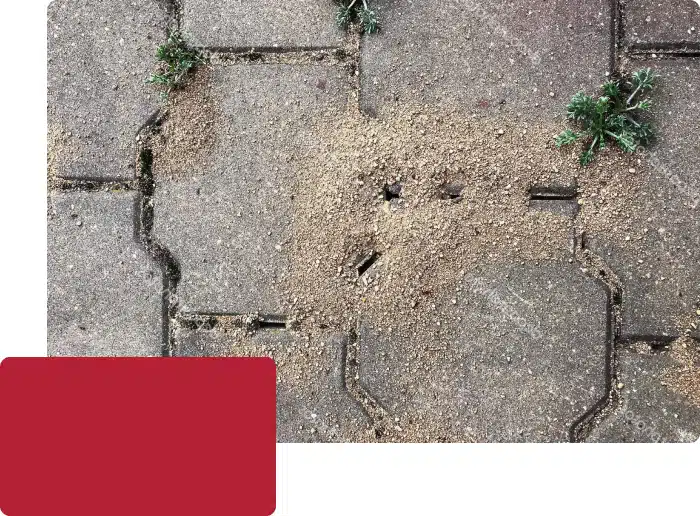Pavement Ants
The Undetectable ant that will definitely show
when you’re entertaining

Have you noticed those piles of dirt in the shape of miny volcanoes that appear every now and then? Maybe next to sidewalks or driveways? The skilled workers responsible for leaving all those dirt mounds are pavement ants and those mounds are debris from excavation. The ants are about 1/8 inch, light brown to black, have elbowed antennae, are a two node ant, are known for constructing big colonies underground and occasionally nest indoors.
They're not like some other ants that represent a clear risk for humans or pets, they are more of a nuisance if you decide to have a picnic outside. However, they can turn into bad neighbors if left unchecked.

Where do Pavement ants live?
Depending on the season, they could be all over. Outside, this ant nests under stones, patio blocks, under logs or bricks and in caved trees; they can also nest on soil near the foundations of a building. But when the conditions outside turn unpleasant, they seek shelter in human structures following pipes, entering through slabs and nesting in wall insulation or under the floor, and in walls.
As many other ants do, they kick their young in reproductive age out of the colony. Every once in a while you may find winged little buddies all over. They can be annoying and keeping them out of your house during swarming season (usually between June and July) may prove a tiresome quest since they will surpass you in numbers.
Their nest may be too difficult to locate and almost impossible to eradicate unless you contact a professional pest exterminator.


Do pavement ants bite?

Pavement ants don’t actually bite, but do have stingers at the end of their abdomen. They avoid confrontation and show docile behavior, but will sting if provoked by humans or pets.
Are pavement ants more than just a nuisance?
They usually forage for food at night so they may be difficult to detect. When you do see them is usually when they are nesting in a window frame and can see them clustering.
So, they will probably won't present a problem more than the embarrassment of having people see them when they visit but, as they are opportunistic feeders, they can come for your storage food and contaminate it with bacteria or even salmonella. Also, they love pet foods so they may go after the kitty or dog bowl.

How can I prevent having pavement ants inside?
If you’ve seen them here and there, you may already have satellite colonies inside. You will need to focus on the main colony near your home, as well as the small ones that might be inside.
Outside colonies may be too difficult to identify because they can forage as far as 30 ft. , and pavement ants can sting when provoked so they are good candidates for granular baiting treatments as well as spraying . Remember, this treatment must be executed by professionals, otherwise it may not be effective at all and the health related risks of living with ants are just not worth it.

If you struggle to detect what kind of ant species is giving you trouble, or are not sure what to do once you've identified it, call AMPEST for an inspection and treatment, we can assist you every step of the way.

Monday - Friday: 8:30am - 5:00pm
Saturday: 8:30am - 12:00pm
Contact Us
"*" indicates required fields
